2 4-Difluorobenzoic acid(CAS# 1583-58-0)
Risk and Safety
| Hazard Symbols | Xi – Irritant |
| Risk Codes | 36/37/38 – Irritating to eyes, respiratory system and skin. |
| Safety Description | S26 – In case of contact with eyes, rinse immediately with plenty of water and seek medical advice. S37/39 – Wear suitable gloves and eye/face protection |
| WGK Germany | 3 |
| HS Code | 29163990 |
| Hazard Class | IRRITANT |
Upstream Downstream Industry
| Downstream Products | 2,4-Difluorobenzotrifluoride 2,4-DIFLUORO-5-NITROBENZOIC ACID 3-bromo-2,6-difluorobenzoic acid 4-FLUORO-2-METHOXYBENZAMIDE METHYL 4-FLUORO-2-HYDROXYBENZOATE |
Nature
| storage conditions | Sealed in dry,Room Temperature |
| acidity coefficient (pKa) | 3.21±0.10(Predicted) |
| water solubility | SOLUBLE |
| BRN | 973355 |
| InChIKey | NJYBIFYEWYWYAN-UHFFFAOYSA-N |
| chemical properties | white powder |
| use | pharmaceutical and liquid crystal intermediates. |
Security information
| WGK Germany | 3 |
| Hazard Note | Irritant |
| HazardClass | IRRITANT |
| customs code | 29163990 |
Uses and synthesis methods
Application
2, 4-difluorobenzoic acid is an important drug and pesticide intermediate, such as 2, 4-difluorobenzoic acid is mainly used to synthesize antifungal drugs fluconazole, voriconazole and drug pesticide intermediate 4-fluorosalicylic acid, drug intermediate 3, 5-difluoroaniline, etc. 2, 4-difluorobenzoic acid can also be used in liquid crystal materials, which has the advantages of high value and good market prospects.
Preparation
Add 2, 4-dinitrotoluene and water to the reaction vessel, adjust the pH value to 7, stir and heat to 75°C. Potassium permanganate, magnesium sulfate and phase transfer catalyst were added in batches. After adding, continue to stir and react at constant temperature for 3 hours. Filter while hot and wash the filter cake with hot water. Merge the filtrate, acidify with 35% hydrochloric acid to pH 2-3, there are a large number of white precipitates after the crystals are completely precipitated, filtered, washed, recrystallized, and dried to obtain white crystals as 2,4-dinitrobenzoic acid. The ratio of 2, 4-dinitrotoluene to potassium permanganate is 2.4:1. The product yield of this step is 90.7%.
add N,N-dimethylmethylphthalamide into the reaction container, heat to 100~110 ℃, preheat for 0.5~1h. Add dried anhydrous potassium fluoride under stirring and keep the temperature preheated for 0.5-1h. After that, 2, 4-dinitrobenzoic acid and hexyltrimethylammonium bromide were quickly added to the reaction vessel at one time, and the heating was continued to 120 ℃, the temperature was maintained and the stirring reaction was continued. After 7h of reflux reaction, the solvent is recovered by distillation, and then the reaction liquid is distilled with steam. The collected fraction is a white emulsion. After standing for a period of time, the oily target fraction basically sinks to the bottom, the white clear liquid on the upper part is poured, and the oil is cooled to precipitate white crystals to obtain a crude product; the crude product is recrystallized, Suction filtration, washing, and drying to obtain white crystals of 2,4-difluorobenzoic acid. The ratio of the amount of 2, 4-dinitrobenzoic acid to potassium fluoride is 2.7:1. The product yield of this step is 72.4%.
Introduction
2,4-Difluorobenzoic acid is an organic compound. The following is an introduction to the properties, uses, preparation methods and safety information of 2,4-difluorobenzoic acid:
Quality:
- Appearance: 2,4-Difluorobenzoic acid is a white crystalline solid.
- Solubility: It is soluble in common organic solvents such as ethanol, methanol and methylene chloride.
Use:
- Optical materials: It can also be used as one of the raw materials for the preparation of optical materials and optical films.
- Industrial applications: 2,4-difluorobenzoic acid can be used in the electronics industry, coatings and plastics industry with anti-corrosion, anti-oxidation and anti-ultraviolet effects.
Method:
- 2,4-Difluorobenzoic acid can be obtained by fluorination of hydrofluoric acid with p-methylanisole.
Safety Information:
- When operating, dust should be avoided to avoid inhalation and eye contact. At the same time, good ventilation conditions should be maintained.
- Avoid contact with strong oxidizing agents or strong acids to avoid dangerous reactions


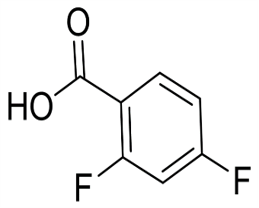
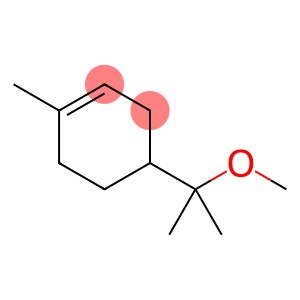
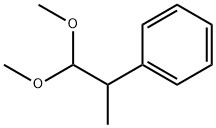

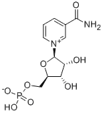
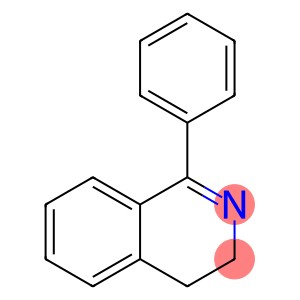
![thiazolo[5,4-c]pyridin-2-amine(CAS#108310-79-8)](https://www.xinchem.com/uploads/pyridinamine.png)